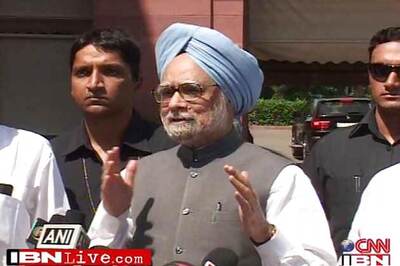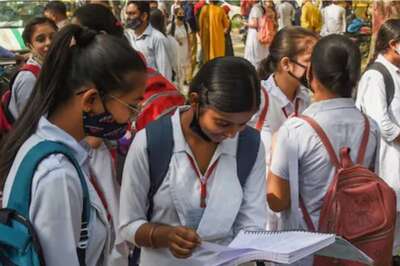
views
New Delhi: Google has dedicated its doodle for today to the renowned social worker and activist Murlidhar Devidas Amte, affectionately known as Baba Amte. Through a slideshow depicting various facets of Baba Amte’s legacy, the doodle traces his life’s journey, as he invested it in helping the poor, especially those afflicted with leprosy.
On this day in 1914, Baba Amte was born into a wealthy family in Maharashtra. He went on to study law and was running his own successful firm by his 20s. However, Murlidhar Devidas Amte was always sensitive about his privileges and the realization that India suffers from class based inequalities and perishes in its clasp, ran deep with him. Driven by this, by his 30s, Baba Amte left his practice in order to work alongside the underprivileged.
Baba Amte's life was changed forever when he encountered a man suffering from leprosy. The sight of the man's decaying body petrified him and he decided to confront his fear. He once said, “The most frightening disease is not losing one's limbs, but losing one's strength to feel kindness and compassion.” Baba Amte identified this as the state of "mental leprosy" that allowed people to feel apathetic in the face of this dreaded affliction. The disability of apathy, he said, was the greatest malaise to mankind.
Dedicating his life to the cause, Baba Amte defied the social stigmas faced by leprosy patients by injecting himself with bacilli to prove that the disease was not highly contagious.
But that wasn’t all. Carrying forward his work, in 1949 he established Anandwan-meaning "Forest of Bliss"-a self-sufficient village and rehabilitation center for leprosy patients.
Baba Amte launched the first Knit India March in 1985. At age 72, he walked from Kanyakumari to Kashmir, a distance of more than 3,000 miles with the simple purpose to inspire unity in India. In a time of national strife, Baba Amte was accompanied by 100 men and 16 women, all under the age of 35. He organized a second march three years later, traveling over 1800 miles from Assam to Gujarat.
In recognition of Baba Amte's tireless contribution to humanity, he was awarded with the Padma Shri Award in 1971, the 1988 United Nations Prize in the Field of Human Rights, and the 1999 Gandhi Peace Prize. His legacy lives on through his two sons who share their father's sense of compassion.



















Comments
0 comment